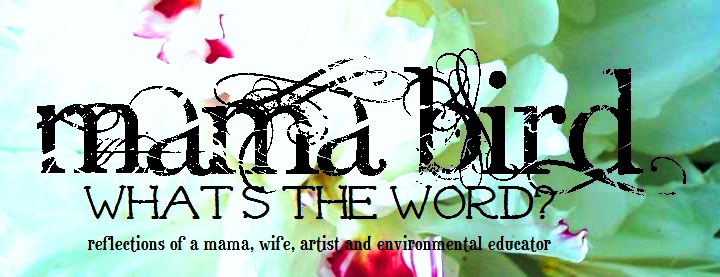You could say that moving from the adorable baby and toddler phases into the preschool years has been full of surprises. It was hard to imagine there would ever be a time when E would spontaneously say "thanks, mom!" or "I love you, mama". As his identity and independence grows stronger, he is becoming more aware of others. He's starting to understand how his actions affect other people and, in turn, how other people feel. Although there is plenty to learn about give-and-take with family and peers, I am amazed to see how he makes sense of things in his own four-year-old context.
Lately we've been having some interesting, unprompted dialogue. For example, if I say "brr! It's cold outside! Good thing we brought your mittens," he'll respond with "some kids don't have any mittens and that's sad."
Or if his daddy tucks him in and says "look at all those blankets! You look so nice and warm," E may say "and some kids don't have any blankets and that's sad."
You get the idea. He's becoming more aware of himself and the things that are basic needs and comforts to him. He drives his point home with food, toys, and even kitties. He's even chimed in that "some children don't have a mommy and daddy, and that's so sad. Isn't it, mom?"
We try to take advantage of these moments by helping him feel grateful about how fortunate we are for our family, a warm place to sleep, books to read, nourishing food, and toys to play with. But I want him to know that every family is different. To him it would be sad not to have his mommy or daddy because we've always been here. But as long as there is an adult to love and care for a child, families can look different, but still be full of love. It doesn't have to be "so sad".
Of course, understanding how family structures are different is not the same as trying to understand why some people don't have the basic things they need in order to live (food, clothes, and a safe, warm place to live). I think the idea of needing to be loved by his family is closely linked in his mind to other basic needs. Makes complete sense to my adult mind, but it's fascinating to watch him develop his own sense of this.
Given all this talk about how some children don't have all the things they need, I am feeling like this time is ripe for helping him understand why we give to others. (Up until this point, I wondered how much I've said or done has really sunk in.) Usually I go through his toys and clothes and give away things he doesn't need anymore. But now more than ever, I want to encourage him to help others by choosing the things he can part with. Although he is small, he can make a difference!
In Christine Carter's book Raising Happiness, a book that I absolutely love, she discusses the habits of happy people, statistically speaking. She describes being altruistic and a person's volunteerism as strong predictors of long-term happiness. She urges us all to foster opportunities for altruism and giving so our children learn to empathize with and help others. With the fast paced lives that we lead, this is way easier said than done. But I'm going to keep trying!
And actually, it appears that E is taking the lead anyhow.
We have our own little grateful routine and I wonder if it is part of where his concern for others has come from lately? Each night we send love. We think about who "needs to feel our love" and who could use a little extra. We talk about how we can always close our eyes and "feel the love coming back" from each other, especially when we are apart. I hope that this reflection about other people at night is helping him feel more grateful. It's important for children (and adults...) to stop focusing on themselves, their own problems, frustrations, and wants. E is such an amazing kid and a wonderful reminder to me that I also need to focus on others - and keep encouraging him to do the same.


